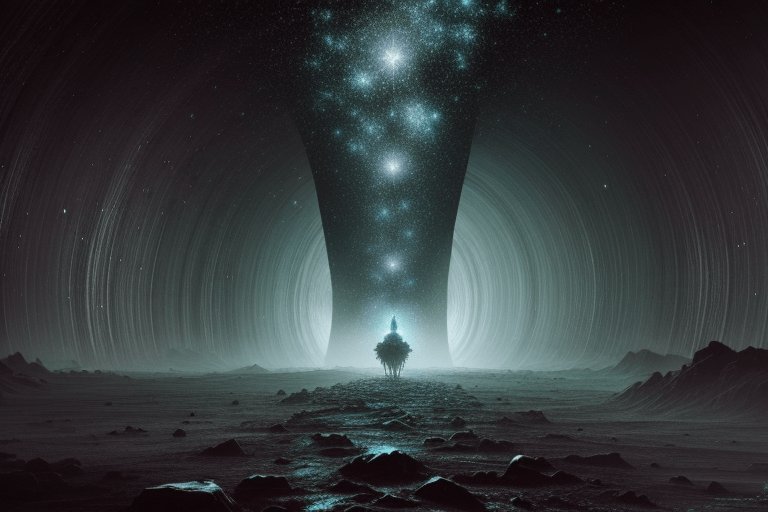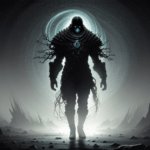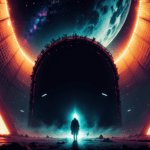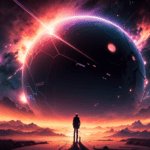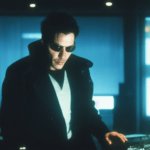The Cosmic Horror of Existential Dread: What It Means to Live in a Chaotic Universe
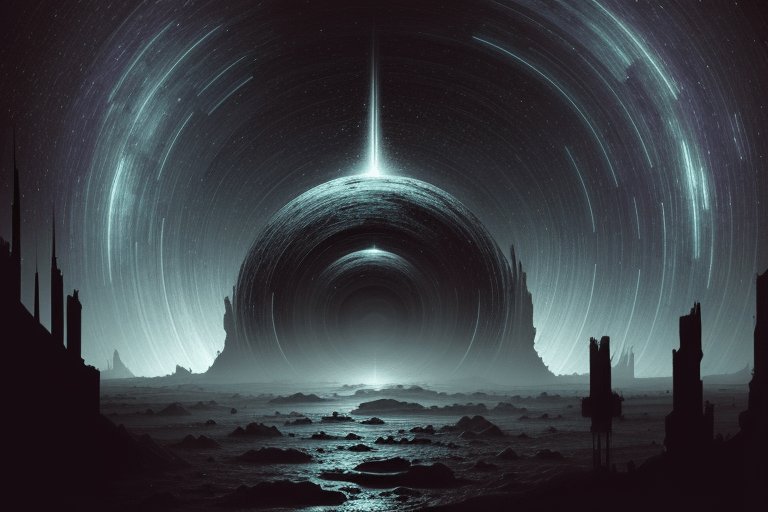
Introduction
As human beings, we are constantly seeking to understand the world around us. We want to make sense of our existence, find meaning in our lives, and understand the forces that govern the universe. However, as we delve deeper into the mysteries of the cosmos, we may encounter a sense of existential dread – a feeling of unease or anxiety about the fundamental nature of our existence.
Existential dread is not unique to our time, as it has been a subject of philosophical inquiry for centuries. However, in the context of our current understanding of the universe, it takes on a particularly haunting quality. In this blog post, we will explore the cosmic horror of existential dread and what it means to live in a chaotic universe.
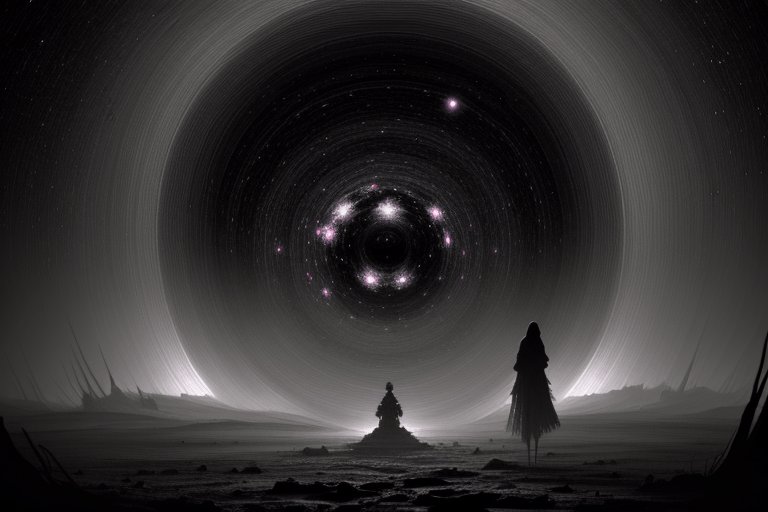
The Chaotic Universe
The universe is a vast and complex place, filled with billions of galaxies, each containing billions of stars, and untold numbers of planets, asteroids, and comets. It is a place of unimaginable scale and complexity, with forces and phenomena that are beyond our ability to comprehend fully.
One of the most significant discoveries of modern science is the fact that the universe is not static or unchanging, but rather a dynamic and chaotic system. The laws of physics that govern the universe dictate that it is in a constant state of flux, with matter and energy shifting and changing in unpredictable ways.
The universe is also subject to a number of powerful forces that can have a significant impact on its structure and behavior. Gravity, for example, is responsible for the formation of galaxies and the motion of planets, but it can also lead to the destruction of stars and the creation of black holes. Similarly, the strong and weak nuclear forces that govern the behavior of subatomic particles can lead to phenomena such as nuclear fusion, radioactive decay, and particle annihilation.
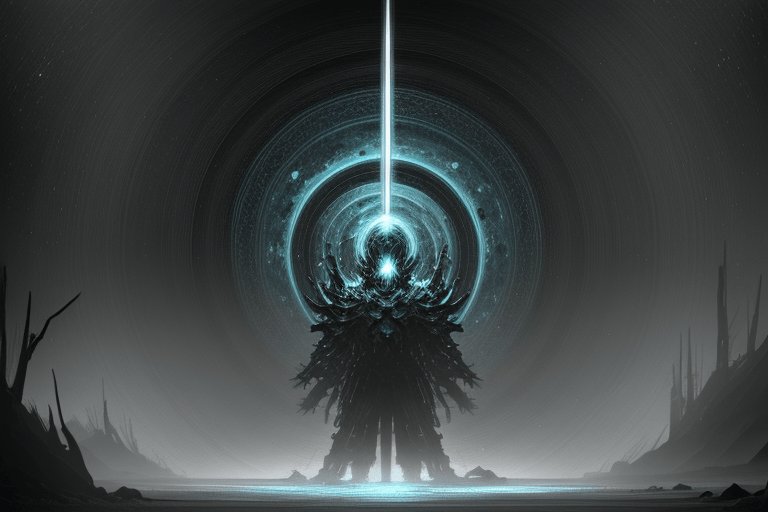
The Chaos of Life
The chaos of the universe is mirrored in the chaos of life itself. Life is a complex and dynamic system, with organisms constantly adapting and evolving in response to their environment. The process of evolution, which is driven by the forces of natural selection and genetic variation, has led to the incredible diversity of life that we see around us.
However, this diversity is not without its costs. The struggle for survival can be brutal and merciless, with organisms competing for resources, avoiding predators, and adapting to changing environmental conditions. The natural world can be violent and unpredictable, with natural disasters such as earthquakes, hurricanes, and tsunamis taking a devastating toll on ecosystems and human communities.
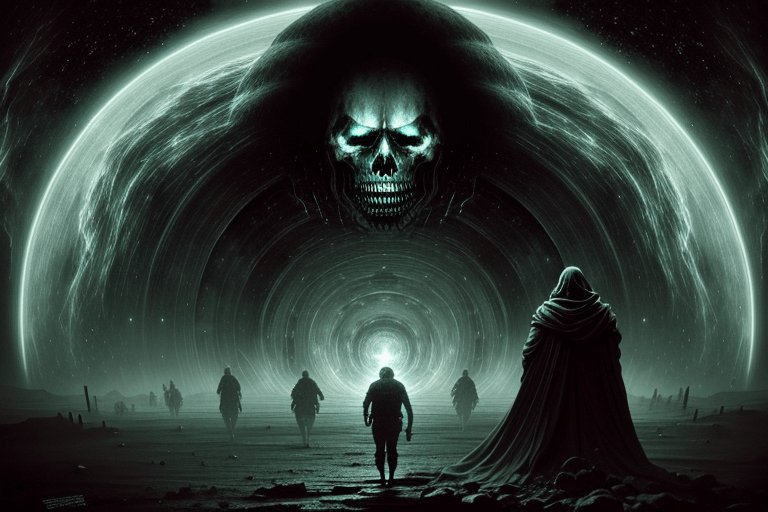
The Human Condition
As human beings, we are acutely aware of our place in the universe. We have developed the capacity for self-reflection and self-awareness, which allows us to contemplate our own existence and the nature of the universe. This ability has led us to ask fundamental questions about the meaning of life, the purpose of our existence, and the ultimate fate of the universe.
However, this self-awareness can also lead to a sense of existential dread. We are confronted with the reality that our lives are finite, that we are subject to the same chaotic forces that govern the universe, and that ultimately, everything we do and achieve will be swallowed up by the inexorable march of time.
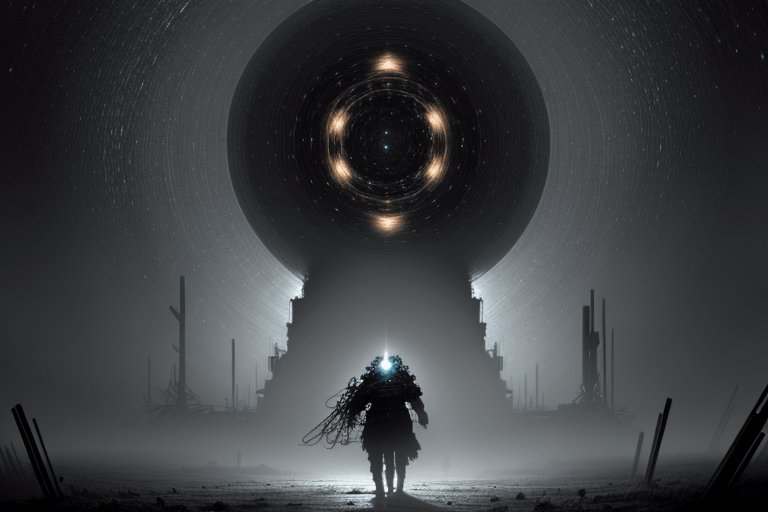
The Cosmic Horror
The cosmic horror of existential dread arises from the realization that we are small and insignificant in the face of the vastness and complexity of the universe. It is the recognition that our lives are fleeting and that our existence may ultimately be meaningless in the grand scheme of things.
This horror is not just a product of our imagination but is grounded in the scientific understanding of the universe. We know that the universe is expanding at an accelerating rate and that eventually, all matter will be dispersed and lost in the void. We also know that the universe is subject to powerful forces that can have catastrophic consequences, such as supernovae.
The prospect of such a bleak and ultimately meaningless existence can be overwhelming, leading to feelings of despair and hopelessness. However, it is important to recognize that our understanding of the universe is constantly evolving, and what may seem like an insurmountable obstacle today may be overcome in the future.
Moreover, while the universe may be chaotic and unpredictable, it is also a place of incredible beauty and wonder. The stars, planets, and galaxies that make up the cosmos are awe-inspiring, and the fact that we are able to contemplate them and understand their workings is a testament to the incredible capacity of the human mind.
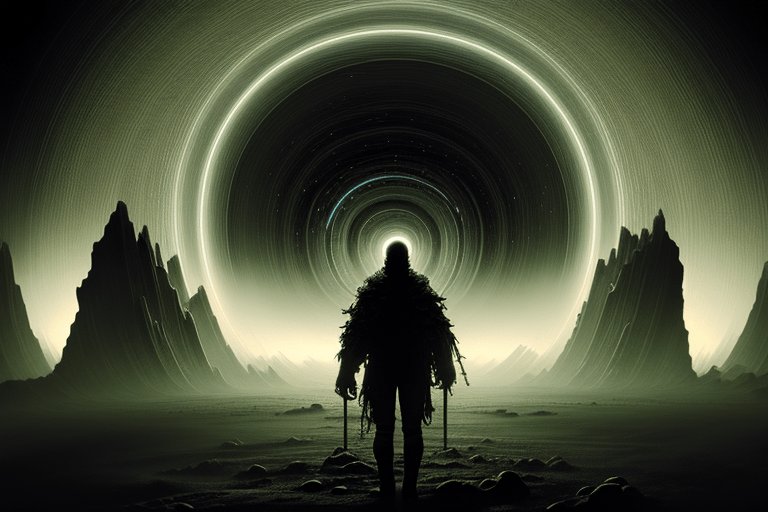
Conclusion
Existential dread is a natural and understandable response to the chaos and unpredictability of the universe. It is a reminder that our lives are fleeting and that ultimately, everything we do and achieve may be swallowed up by the inexorable march of time.
However, it is important to remember that our understanding of the universe is constantly evolving, and what may seem like an insurmountable obstacle today may be overcome in the future. Moreover, the universe is also a place of incredible beauty and wonder, and the fact that we are able to contemplate it and understand its workings is a testament to the incredible capacity of the human mind.
Ultimately, it is up to us to find meaning and purpose in our lives, even in the face of the cosmic horror of existential dread. We may never fully understand the nature of the universe, but we can still strive to make a positive impact on the world and leave a lasting legacy for future generations.

